Mumbai, with its dynamic culture and contrasting comforts and poverty levels, is a city in India known for its economic activities and prosperity. Still, this megacity accommodates millions of people who come there in search of better livelihoods, yet a significant section lives in slums and pathetic conditions. Education has proved to be a good way out of the trap of poverty, but in many cases, children of these communities cannot get quality schooling. NGOs have appeared to be significant forces in meeting these challenges by opening schools that address the needs of slum children.
This article examines the scenario of NGO Schools in Mumbai by reviewing their mission, approaches used, and problems encountered, including their effectiveness in serving the communities in India.
Challenges in Education in Mumbai
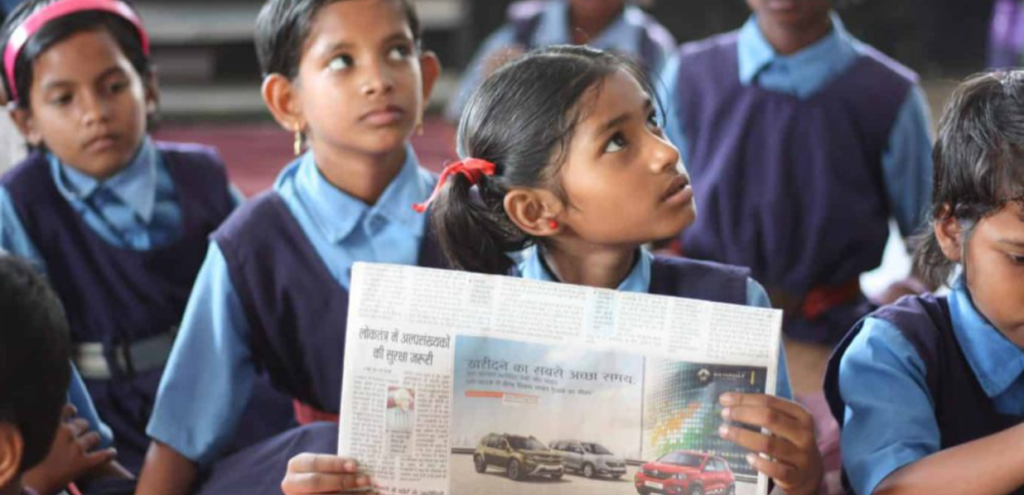
The educational challenges facing children in the slums of Mumbai are numerous:
- Quality Access to Education: Many children cannot get into government schools because of overcrowding, inadequate infrastructure, or distance from home.
- Dropout Rates: the economic pressure causing children to withdraw from school, contributing to income for the family.
- Quality of Education: Government schools experience resource constraints, unmotivated teachers, and obsolete curricula.
Because of these shortcomings, NGOs have filled in the gaps by initiating alternative education options which are responsive to the needs of marginalised communities.
Prominent NGO Schools in Mumbai
Pratham
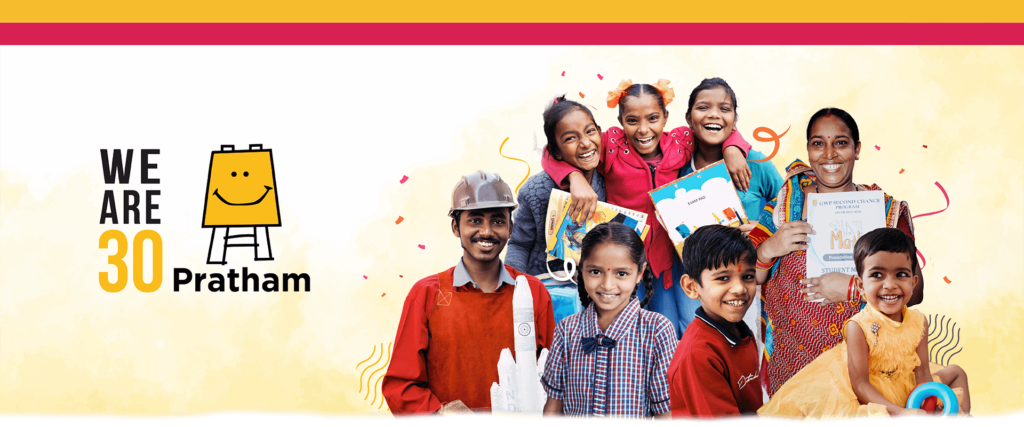
Overview: Pratham is one of the largest education-focused NGOs in India, and it began in 1995. A simple mission governs it to enrol every child in school and to learn for each child learning effectively. The innovative TaRL (teaching at the right level), a program based on children’s actual learning rather than age and grade, makes the organisation stand out.
Key Initiatives:
- Early Childhood Education: Pratham offers preschool programs which focus on play-based learning that will prepare children for formal school.
- Remedial Education: Pratham also provides after-school support for children who are behind.
- Vocational Training: The organisation also runs skill development programs for youth that make them employable and, thus, capable of getting jobs better than they could otherwise have managed.
Website: https://www.pratham.org/
Akanksha Foundation
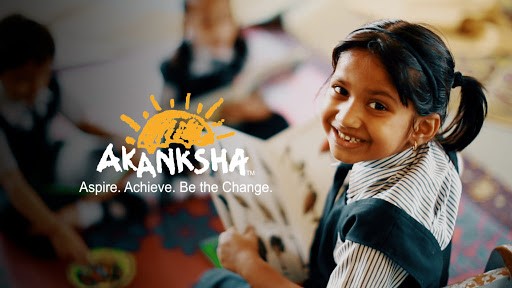
Overview: The Akanksha Foundation began with the mission of providing quality education to underprivileged children. It initially started with 15 students and has now scaled up to reach over 13,000 children in 26 schools.
Key Initiatives:
- Holistic Curriculum: Akanksha lays emphasis on the holistic approach, which encompasses both academics and extracurricular activities, like sports and arts.
- Teacher Training: The trust places much effort in training the teachers to make them better equipped with the latest pedagogical skills.
- Community Engagement: Akanksha involves parents and local communities in the education process through workshops and meetings.
Website: https://www.akanksha.org/
Muktangan
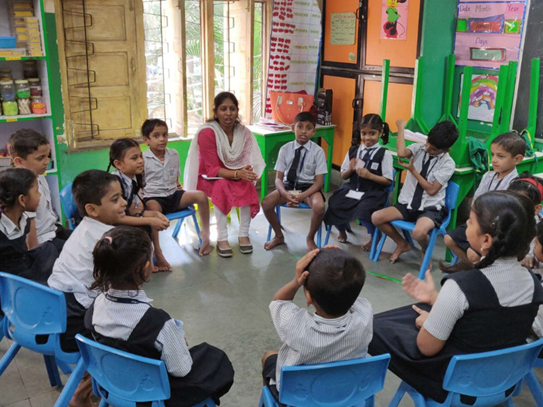
Overview: Muktangan has a different model that primarily focuses on child-centred learning and community engagement. It has many English-medium municipal schools with an emphasis on inclusive education practices for children of all other learning abilities.
Key Initiatives:
- Teacher Education Center: Muktangan has a teacher-education centre that trains teachers in innovative pedagogies appropriate for urban settings.
- Inclusive Practices: The organisation accredits children of different abilities and backgrounds into mainstream school setups.
- Community Development: Through local engagement, Muktangan raises community awareness and interest in children’s educational issues.
Website: https://muktanganedu.org/
Smile Foundation
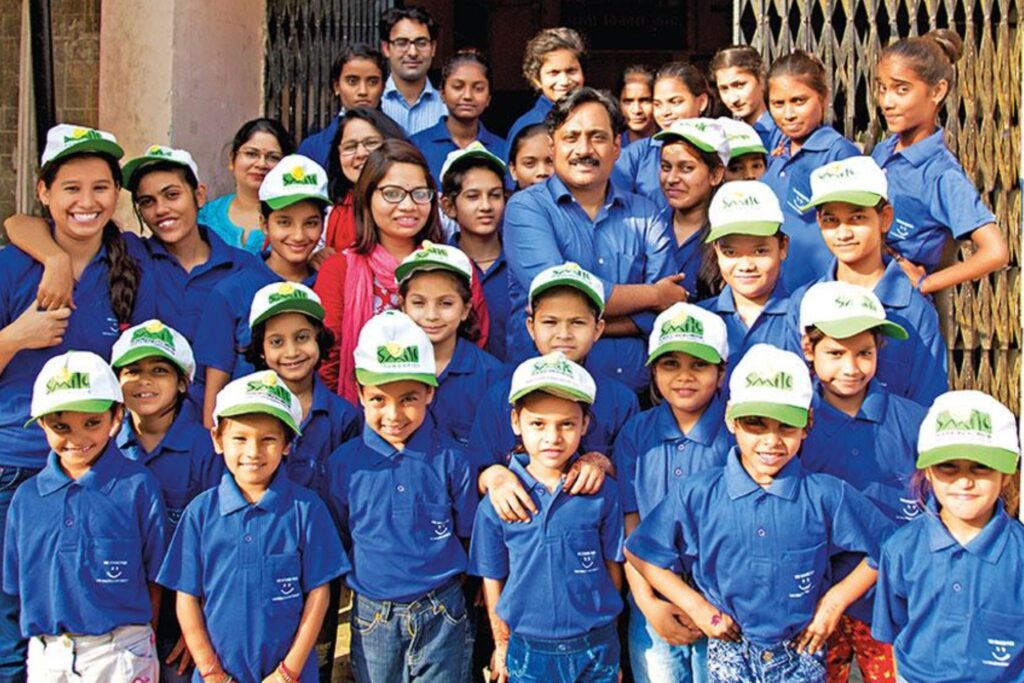
Overview: Smile Foundation aims to enable underprivileged children through education by addressing health and livelihood issues. Reaching more than 1.5 million children annually in India, Smile Foundation incorporates a wide range of development elements into its educational schemes.
Key Initiatives:
- School Programs: The formal education programs operated by Smile Foundation include quality schooling along with relevant resources like books and uniforms.
- Health Initiatives: The foundation ensures that students receive health check-ups and nutrition support, recognising that health is crucial for effective learning.
- Skill Development Workshops: For older students, Smile Foundation offers vocational training programs that prepare them for future employment opportunities.
Website: https://www.smilefoundationindia.org/
Ra Foundation

Overview: Established in 2004, Ra Foundation is focused on helping vulnerable children who live in Mumbai’s slum areas. The “Happy Kids Program” gives children all-rounded support, including residential schooling, mental health services, and family support initiatives.
Key Initiatives:
- 360-Degree Intervention: The foundation aims to tackle every developmental area of the child-educational, social, emotional, and physical.
- Residential Facilities: For those children who are not able to stay with their families due to financial or security issues, Ra offers them shelter and education at its facilities.
- Emotional Well-being Counselling: Because the child feels the psychological distress of poverty, Ra has instituted counselling services to accompany its curriculum.
Website: https://www.rafoundation.org.in/
Udaan India Foundation

Overview: Udaan India Foundation specialises in providing value-based education for poor children across various programs to keep up with specific needs.
Key Initiatives:
- Pre-school Preparatory Institutions: Udaan institutes establish preparatory educational centres that build early childhood training that helps transition young minds for first-level education.
- Skill Development Workshop: For those who do not go mainstream, Udaan organises skill development workshops to get them ready for the job market.
- Community Awareness Campaigns: Udaan helps the local community to realise the relevance and importance of education for all children.
Website: https://www.udaanindiafoundation.org/
Gateway School of Mumbai
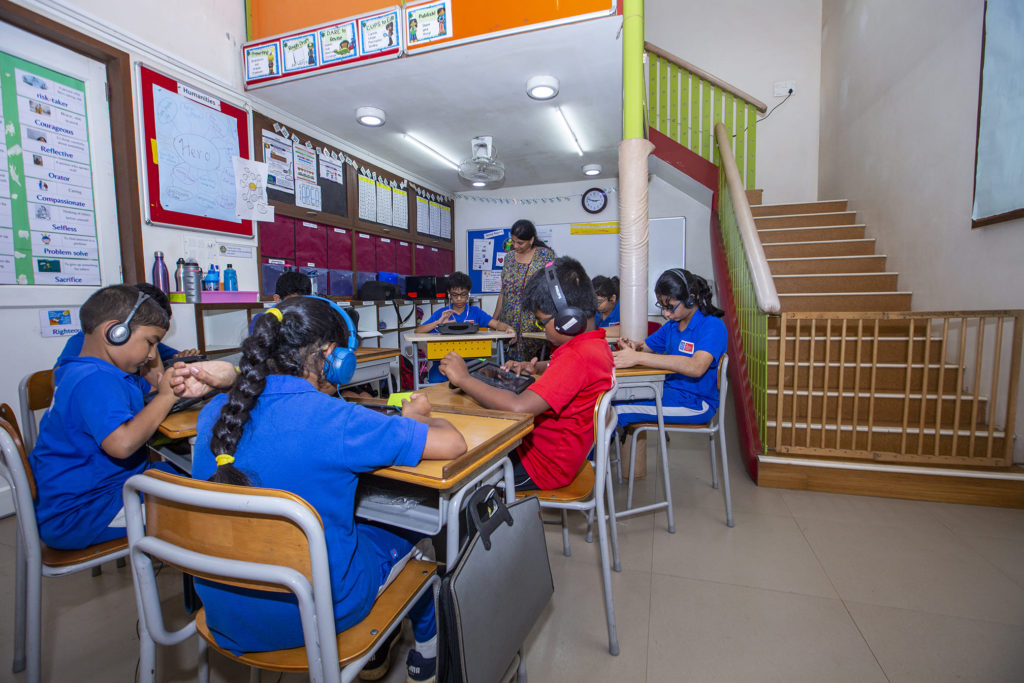
Overview: Gateway School of Mumbai is specifically focused on quality education for learners with disabilities. It wants to create a mainstream environment that would allow neurodiverse learners to learn and coexist with others.
Key Initiatives:
- Inclusive Education Model: Gateway School advocates the philosophy of inclusivity in learning within the classroom.
- Individualised Learning Plans: Every learner is given unique attention according to their specific learning requirements.
- Parent Involvement Programs: The school engages parents in active participation through workshops and support groups.
Website: https://gatewayschoolmumbai.org/
Ekam Foundation
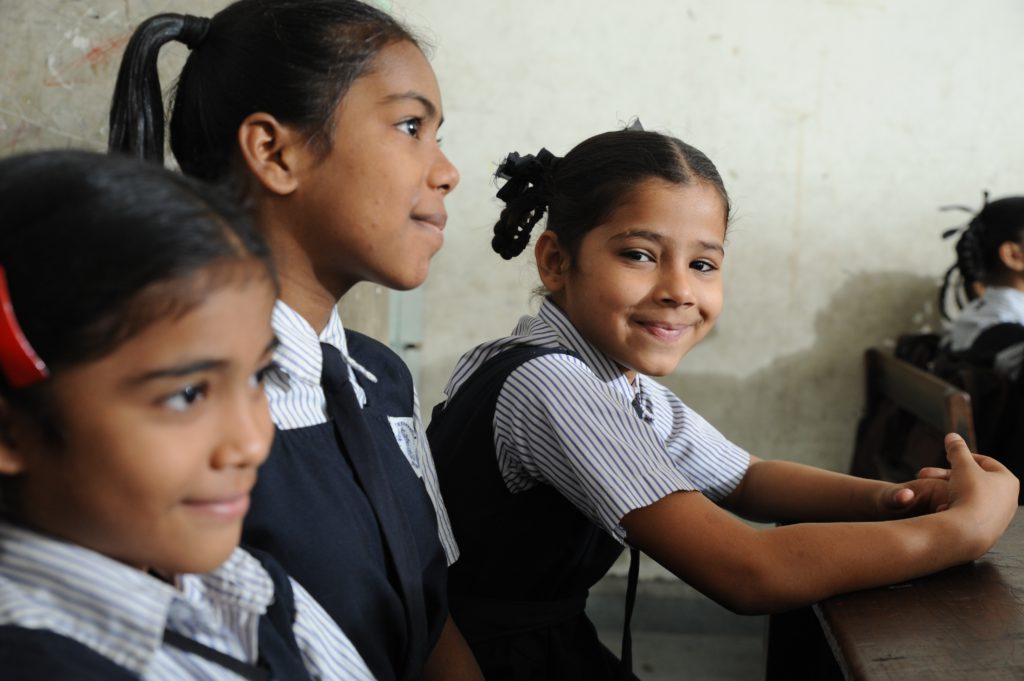
Overview: Ekam Foundation works on the betterment of underprivileged children through its health and educational initiatives. Since its inception in 2012, it has developed several programs with the aim of bridging the loopholes in accessing quality education.
Key Initiatives:
- School Health Program (SHP): Introduced to ensure that children’s health needs are met so they can attend school regularly.
- Online learning sessions: The strategy was forwarded to the administration with the motive of ensuring continuous academic engagement with students during the pandemic.
- Community Outreach Initiatives: The organisation engages the local communities through health awareness campaigns and educational programs conducted together with the foundation
Website: https://ekamfoundationmumbai.org/
Salaam Bombay Foundation
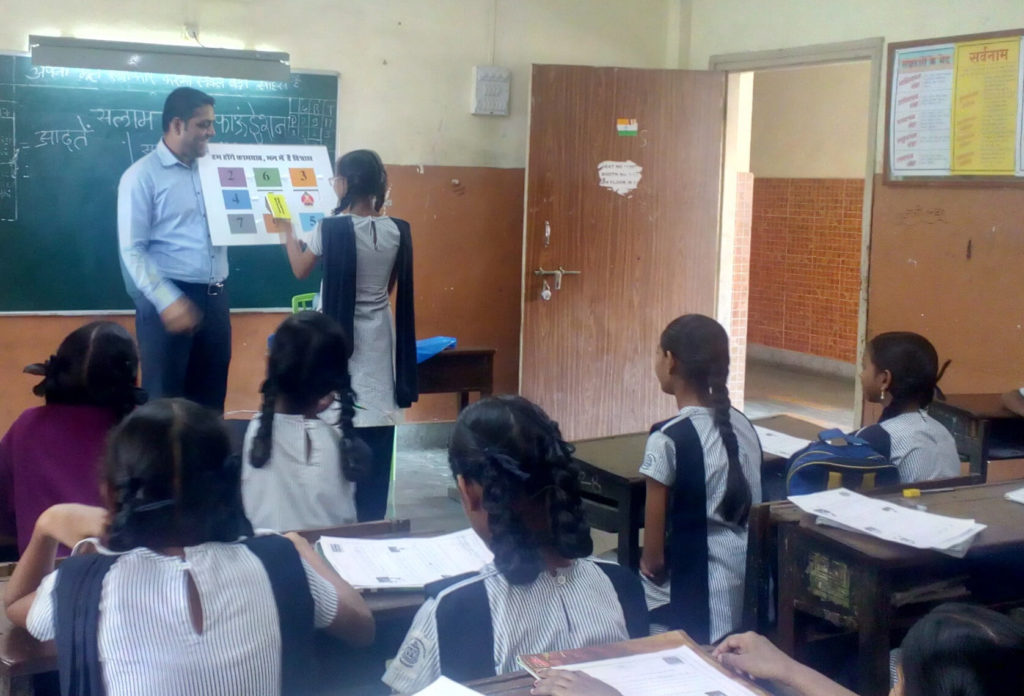
Overview: Salaam Bombay Foundation empowers vulnerable children between the ages of 11 and 17 years at risk of being pushed out of school. It works mainly in slum areas and offers education and life skills.
Key Initiatives:
- Life Skills Training Programs: Teaching students the skills required to enhance personal development and prepare them for employment.
- Scholarship Programs: Financial aid for higher education.
- Health Awareness Campaign: Educate them on hygienic and healthy practices relevant to their lives.
Website: https://www.salaambombay.org/
Impact of NGO Schools on Communities
The impact of NGO in Mumbai is not only on the individual students but also plays a crucial role in developing the community through:
- Empowering Families: Economic and social improvement of families can be brought about by educated children. As they learn and acquire skills, they are more likely to find stable employment opportunities that can better their family’s economic status.
- Reduction in Dropout Rates: NGO schools provide an environment that enables children to overcome the obstacles that hinder them from continuing their education. The organisations assist students by providing flexible schedules or additional resources such as transportation and meals.
- Gender Equality: Many NGOs focus on educating girls, who are more restricted by societal norms or economic constraints. Prioritising girls’ education significantly contributes to achieving gender parity in education.
- Community Resilience: Through education initiatives that engage parents and other local stakeholders, NGO schools promote community ownership of children’s education. This shared responsibility helps develop resilience against the socio-economic challenges that families face.
Challenges Confronting NGO Schools
Despite their successes, NGO schools face several challenges:
- Funding Constraints: Many NGOs rely heavily on donations and grants from individuals or corporate sponsors. This dependence can make financial sustainability a constant concern as funding may fluctuate year-to-year based on donor priorities or economic conditions.
- Scalability Issues: Though some NGOs have managed to increase their footprint within specific geographies or segments, there is little evidence that similar success stories are scalable across contexts. This could be because cultural or logistical aspects are different across various cities like Mumbai.
- Collaboration with the Government: The engagement process with government departments is very complicated. Sometimes, bureaucratic constraints prevent flexibility in operations or make program implementation slower than it otherwise should be for students.
Future prospects for NGO Schools in Mumbai
The NGO schools can think of the following strategic initiatives to amplify their impact further ahead:
- Innovative Fund Models: Social entrepreneurship will help generate diversified revenue streams while getting more of the local community involved in programmes through shared ownership models where locals invest directly into an educational programme
- Use of Technology: Online learning platforms or mobile applications will improve efficiency both administratively and pedagogically by tracking attendance and providing an interactive lesson.
- This helps NGOs not only influence educational reforms but also lobby for more allocations of funds toward public schooling systems that would indirectly benefit all students, regardless of their socio-economic status.
NGO schools play a very vital role in the landscape of education within Mumbai; they bridge gaps that the traditional schooling system has left and empower marginalised communities through access to quality education tailored especially towards their needs.
Through innovative approaches focused on holistic development, these organisations not only equip individual learners but also foster community resilience against the daily socio-economic challenges faced by the community.
As they continue to adapt and navigate emerging obstacles, —ongoing collaboration partnerships will be essential in ensuring sustained positive impacts for future generations benefiting from these vital initiatives that transforming lives across cityscape Mumbai!
Leave a Reply